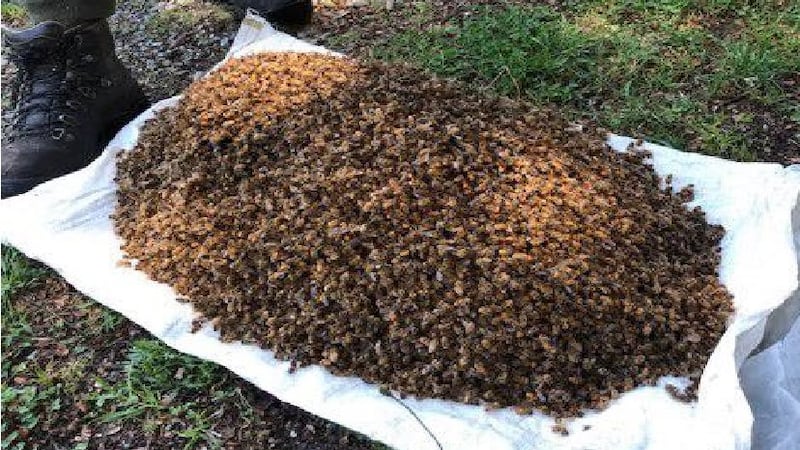Thousands of dead bees were first found on Friday at a farm in Murchison, Nelson. Source: Ricki Leahy.
A South Island beekeeper is devastated after losing more than 100,000 bees at his farm in Murchison, Nelson, after a suspected wasp poisoning incident.
Beekeeper Ricki Leahy, who runs Tutaki Honey through his business Trees and Bees near Mangles Valley, first noticed the bees dying on Friday.
“On Thursday everything was fine. The bees were flying in and out really strongly. Then on Friday morning there were dead bees out on most of the hives.”
The bees looked pretty stressed and "we knew something was up straight away," says Leahy.
“We know it's got to be a poisoning incident for them all to die at the same time."
Ricki Leahy runs around 2000 hives. One hive has about 50,000 to 60,000 bees working to produce honey. Source: Ricki Leahy
Leahy wants to warn anybody in the area who could be poisoning wasps incorrectly.
“You must poison wasps with a meat-based bait so that the bees aren’t attracted, he says.
“Bees are vegetarians. They don’t go for meat at all but if you use a bait which is sugar based with honey or jam then bees will also be attracted.”
Leahy says there’s only a handful of hives that might survive.
“They’ve been depleted of all their bees. They’ll literally only just survive if we look after them.”
Leahy runs around 2000 hives. One hive has about 50,000 to 60,000 bees working to produce honey.
“So literally hundreds of thousands of bees have died,” he says.
Around 40 of those hives have been used for queen hearing.
“What it means, immediately, is that we can’t breed our Autumn queens that we were preparing to do. It’s just come to a grinding halt,” says Leahy.
Leahy will be sending bee samples away to the Ministry for Primary Industries to find out what poison caused the death of the bees. Source: Ricki Leahy
Leahy is calling for anyone, who may have recently used wasp poison in the area, to come and see him to find out what kind of poison they may have used, to stop the incident from happening again.
“I’m sure it was just someone with the best intentions just trying to do something about their wasp problem, but just made a really big blue this time.”
Leahy will also be sending bee samples away to the Ministry for Primary Industries to find out what poison caused the death of the bees.

